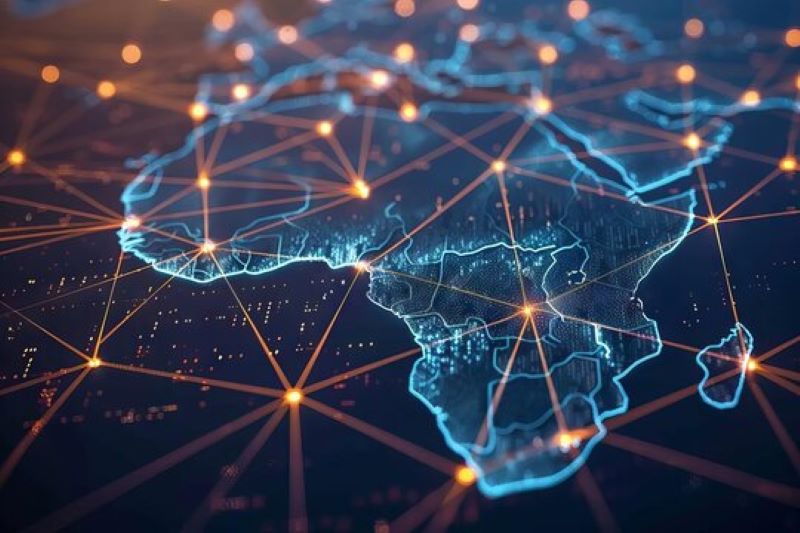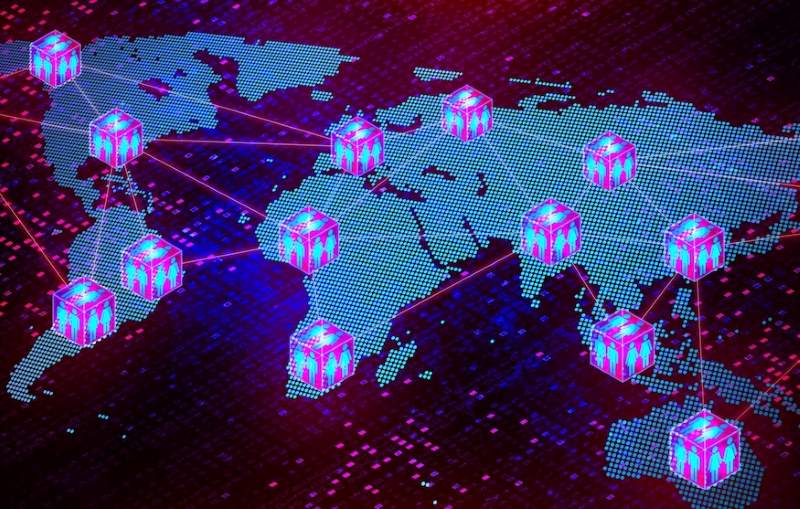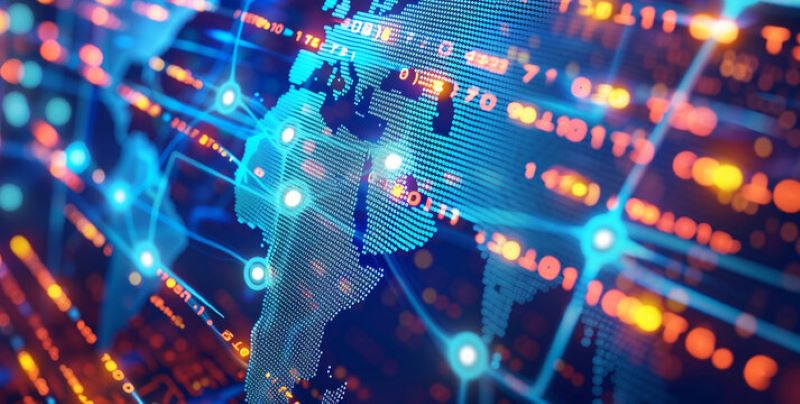A Global Decentralized Network is at the heart of achieving true digital freedom in today’s rapidly evolving technological landscape. By eliminating centralized control and distributing power across users, it ensures privacy, security, and transparency on a global scale. This network model is key to empowering individuals, fostering innovation, and shaping the future of open, unrestricted digital ecosystems.
Overview of Global Decentralized Network
Definition
A Global Decentralized Network is a system that connects devices and users worldwide without a single control center. Instead of relying on a central server or authority, decentralized networks operate based on the distribution and sharing of power among network nodes within the system. Blockchain technology is a prime example of a platform for such a decentralized network, helping maintain integrity, security, and transparency without the need for intermediaries.
Role
Global decentralized network plays a crucial role in ensuring freedom and privacy in the digital age. They help eliminate dependence on controlling organizations or governments, allowing users to manage and control their personal data. Additionally, they promote transparency, reduce fraud, and enhance trust in transactions. Decentralized networks are also key to building new technological applications such as decentralized finance (DeFi), decentralized social networks, and many other fields.
Foundations of a Global Decentralized Network
1. Blockchain Technology
Blockchain technology serves as the core foundation of global decentralized network. Blockchain functions as a distributed ledger, where information is stored in blocks linked together through a cryptographic chain.
Each node in the system maintains a copy of this ledger, ensuring that no single person or entity has absolute control over the data. This provides security, transparency, and immutability to the network, enabling transactions to occur without intermediaries.
2. Peer-to-Peer (P2P) Model
Decentralized networks are built on the P2P model, where devices and users connect directly without going through a central server.
Network nodes share data and resources, acting as relay points and information storage. This not only enhances security but also minimizes the risk of network congestion and single points of failure.
3. Smart Contracts
Smart contracts are self-executing programs that run on the blockchain when specific conditions are met. They facilitate the execution of agreements or transactions without the need for intermediaries or third parties.
This reduces costs, fraud risks, and increases transparency. Smart contracts play a crucial role in driving decentralized finance (DeFi) applications and other similar services on decentralized networks.
4. Consensus Protocols
To ensure data consistency and integrity within the network, decentralized systems employ consensus protocols such as Proof of Work (PoW), Proof of Stake (PoS), or other variations.
These mechanisms help nodes in the system reach an agreement on the current state of the ledger without the intervention of a central entity, thus guaranteeing fairness and transparency.
5. Decentralized Power and Management
Global decentralized network distribute management and control to the community of users instead of a central authority. This not only ensures democracy but also encourages the participation of multiple parties in the development and protection of the network.
Important decisions within the network are often made through voting or consensus mechanisms, creating a fair and transparent environment.
Benefits of Decentralized Networks for Digital Freedom
1. Security and Privacy
Decentralized networks offer a higher level of security and privacy compared to centralized systems. In a decentralized network, personal data and transactions are encrypted and stored across multiple nodes, not concentrated in a single central server.
This reduces the risk of attacks or data loss from a single point, while also allowing users to control their personal information without fear of interference or surveillance from intermediary organizations.
2. Reduced Dependence on Centralized Organizations
One of the biggest advantages of decentralized networks is that they eliminate dependence on centralized organizations such as governments, banks, or large tech companies.
Users do not need to rely on third parties to conduct transactions, exchange information, or store data. This provides freedom in using and sharing information, helping users avoid barriers and control that may come from centralized entities.
3. Transparency and Trustworthiness
Global Decentralized Network offer superior transparency, as all transactions and actions are recorded on a distributed ledger that anyone can verify.
This creates a trustworthy environment and helps eliminate fraud or information manipulation. Thanks to transparency, users can easily track and verify transactions, thereby enhancing the system’s trustworthiness.
4. Freedom of Expression and Information Exchange
In a decentralized network, no central entity can control or restrict access to information. This is especially important in the context of centralized platforms that can be censored or limited by government policies or tech companies. Global Decentralized Network facilitate freedom of expression, allowing users to exchange information without fear of censorship or surveillance.
5. Global Accessibility
Another benefit of decentralized networks is their easy accessibility to everyone, regardless of their location in the world. Independent of centralized infrastructures like banks or traditional financial systems, decentralized networks enable anyone to freely participate in the digital ecosystem. This opens up great opportunities for people living in areas without access to modern financial or technological services.
6. Control and Management of Assets
With decentralized networks, users have full control over their assets and data without needing to trust intermediaries. This enhances the digital freedom and sovereignty of each individual.
Users can conduct peer-to-peer transactions without requiring approval from any third party, ensuring that they can manage their assets securely and flexibly.
Building a Global Decentralized Network is pivotal to achieving true digital freedom, as it empowers individuals with enhanced security, transparency, and autonomy over their data and transactions. This technological advancement is reshaping the digital landscape, reducing reliance on centralized authorities, and enabling broader access to information and resources. As explored by Blockchainbulletinweekly, the future of a truly free and open digital world lies in the continued growth and adoption of decentralized networks.



